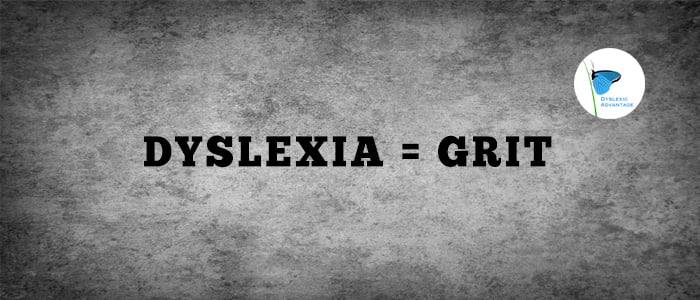New research from the University of Texas – Dallas, connects dyslexia with impaired auditory processing. Dr. Michael Kilgard: “We now have evidence that strongly suggests that people with dyslexia don’t actually hear all of the sounds they need to hear,” said Kilgard, who is the Margaret Fonde Jonsson Professor in the School of Behavioral and Brain Sciences and the associate director of the Texas Biomedical Device Center. “If you have trouble hearing the sounds in your language, you will have trouble learning to read later,” he said. “Armed with this information about a genetic link, we may be able to determine who is at risk for reading problems before they have trouble — before they even start learning to read.” For those who try to keep up with […]
Individual Differences: How Do You Remember ? [Premium]
How do you remember what happened? As depersonalized facts and happenings? Or detailed sensory scenes and experiences? In one of the clearest demonstrations studies so far, researchers showed striking differences between how different people told them how they remembered and brain connectivity patterns. The research is relevant to everyone, of course, whether parents, teachers, or team leaders. From Science Daily, “For decades, nearly all research on memory and brain function has treated people as the same, averaging across individuals,” said lead investigator Dr. Signy Sheldon, now an assistant professor of Psychology at McGill University. “Yet as we know from experience and from comparing our recollection to others, peoples’ memory traits vary. Our study shows that these memory traits correspond to stable differences in brain function, even when we […]
A New World Shaped by Dyslexics – Thomas G. West
Thanks, Founding Dyslexic Advantage Board Member Tom West for this presentation "A New World Shaped by Dyslexics." Tom is the author of In the Mind's Eye and Thinking Like Einstein for A New World Shaped by Dyslexics for Embrace Dyslexia Symposium in Singapore....
Dyslexic Visionary Architect Lord Richard Rogers [Premium]
“Richard Rogers’ late entry into the 4th Year was not successful. He has a genuine interest in and a feeling for architecture but surely lacks the intellectual equipment to translate these feelings into sound building. His designs will continue to suffer while his drawing is so bad, his method of work so chaotic and his critical judgement so inarticulate”. “…there is no disputing that he is one of the most influential architects of all time…” Richard Rogers was definitely a late bloomer. “I was an appalling student all of my life. In fact, I always like to say, I enjoyed much more the last third of my life, than I have in my first third…” Rogers is best known for his work on the […]
Q & A: School Psychologist Asks: How Do I Identify Dyslexia? [Premium]
A School Psychologist asks… Q: How Do I Identify Dyslexia? You may be surprised to learn that psychologists may not know how to identify dyslexia in the school setting. You may be even more surprised to learn that a NASP consensus statement recommended school psychologists avoid the term “dyslexia” all together. Thankfully, not all school psychologists agree with this statement or practice and perhaps since the Secretary of Education said there was no reason not to “Say Dyslexia”, the consensus may change. One insightful school psychologist blog offered this warning citing the NASP report: Warning! Bad Thinking Ahead. Excerpt: “There are several problems with that advice, not the least of which being that it flies in the face of various state legislative and education department initiatives. First and foremost, […]
Can Gifted Kids with Dyslexia Fly at School? – When Tests and Schools Fall Short [Premium]
I recently came across Bobby Gilman’s article on the critical issues facing twice-exceptional or Gifted LD students at school. It’s an ambitious paper for sure, but provides a solid big picture view of the challenges that 2E students face in their pursuit of an appropriate education. The challenges include states drastically scaling back services for students with Specific Learning Disabilities (SLDs) of which dyslexia is considered a part. Sometimes the issue is that the threshold for students to qualify for services is so prohibitively low (e.g. 5 or 12th percentile), that many students are missed and fall off any radar. Regarding Response to Intervention or RTI: Gilman et al. states: “RTI was not developed with gifted children in mind, and adaptation of its rules for gifted children […]
Dyslexia and Multisensory Learning [Premium]
“I myself am a very poor visualizer, and find that I can seldom call to mind even a single letter of the alphabet in purely retinal terms. I must trace the letter by running my mental eye over its contour in order that the image of it shall have any distinctness at all. – William James “Father of Psychology Most dyslexia experts know that multisensory structured language instruction is the gold standard for teaching students with dyslexia, but most people don’t know exactly why. Many attribute the concept to Samuel Orton and Anna Gillingham, but actually the idea was recognized at least 30 years earlier by William James and Francis Galton, both of whom may have been dyslexic. From James’ classic book, The Principles […]
Latest Research – Your Brain on Audiobooks [Premium]
This is pretty cool research. When we listen to stories, we maybe transported to a different place and time, living in the heads of characters, and immersing ourselves in another world. What does that look like in our brains? We have a clearer answer now from brain researchers in the Netherlands, and besides seeing how different areas “light up” or don’t, it now appears that there are often strong individual preferences among individuals as to whether they are “mentalizers” or “sensory-motor” listeners. In this research paper, mentalizers were defined as those who preferentially active ‘Theory of Mind’ areas associated with thinking about other peoples’ thoughts and beliefs, whereas motor listeners were most reactive to action descriptions. From previous studies, researchers learned that if you read the work […]
Are Standardized Tests Making Kids Anxious? [Premium]
Florida Department of Education just released results of their Florida Standards Assessment or FSA Test. 46% of all of the public school children who took the test were below standard and 20% are at risk for being held back in the 3rd grade. What are these tests that can force 3rd graders to repeat a year? A sample 3rd grade reading passage (with questions and answers) is provided by the Department. The passage was clearly developmentally appropriate for 3rd graders – and ridiculous for dyslexic 3rd graders who are likely to make up 15% of every classroom. But don’t take just our word for it. When we put the 3rd grade FSA practice reading passage through a readability tool, What was the passage appropriate for? […]
Dyslexia = Grit
A Penn Professor's book is currently winging its way around the Internet: Grit - the Power of Passion and Perseverance - with its talented author Angela Duckworth making the rounds around popular media outlets. With interest, I looked clicked on a link to a popular...
Karina Eide Memorial Scholarship 2016 Winners – Meet Brian and Charles
Here are two more winners of Dyslexic Advantage's Karina Eide Memorial Scholarship 2016. Brian is an undergraduate at Cornell University who unbeknownst to us, we had been acquainted with because of his excellent assistive technology blog,...
New Research: Brain Scans Predict Cognitive Performance [Premium]
“This suggests that individual differences in many cognitive tasks are a stable trait marker.” There’s a new Oxford research study circulating through scientific communities and around the world. From Science (Task-free MRI predicts individual differences in brain activity during task performance), Tavor and collegues applied machine-learning principles to test subjects in a “resting state” to see how they could predict their performances on various cognitive tasks. What was the result? They could predict subject’s responses in 46 out of 47 tasks (and maybe there’s a reason why the 47th one didn’t work…it involved more subcortical activity). Tasks included responses to mental math, sentence and story processing, but also higher order problem solving, social perception, and working memory. The data have a lot of ramifications in […]

![New Research: Dyslexia Gene and Auditory Processing [Premium]](https://www.dyslexicadvantage.org/wp-content/uploads/2016/07/Screen-Shot-2016-07-09-at-3.44.01-PM.jpg)
![Individual Differences: How Do You Remember ? [Premium]](https://www.dyslexicadvantage.org/wp-content/uploads/2016/07/memorize-our-shutterstock.jpg)

![Dyslexic Visionary Architect Lord Richard Rogers [Premium]](https://www.dyslexicadvantage.org/wp-content/uploads/2016/06/Screen-Shot-2019-09-14-at-11.49.02-AM.jpg)
![Q & A: School Psychologist Asks: How Do I Identify Dyslexia? [Premium]](https://www.dyslexicadvantage.org/wp-content/uploads/2016/06/Screen-Shot-2019-09-14-at-11.37.29-AM.jpg)
![Can Gifted Kids with Dyslexia Fly at School? – When Tests and Schools Fall Short [Premium]](https://www.dyslexicadvantage.org/wp-content/uploads/2016/06/shutterstock_281110997.jpg)
![Dyslexia and Multisensory Learning [Premium]](https://www.dyslexicadvantage.org/wp-content/uploads/2016/06/Screen-Shot-2019-09-15-at-9.19.35-PM.jpg)
![Latest Research – Your Brain on Audiobooks [Premium]](https://www.dyslexicadvantage.org/wp-content/uploads/2016/05/our-shutterstock-audiobooks.jpg)
![Are Standardized Tests Making Kids Anxious? [Premium]](https://www.dyslexicadvantage.org/wp-content/uploads/2016/05/our-shutterstock.jpg)


![New Research: Brain Scans Predict Cognitive Performance [Premium]](https://www.dyslexicadvantage.org/wp-content/uploads/2016/05/Screen-Shot-2016-05-12-at-12.40.17-PM.jpg)













